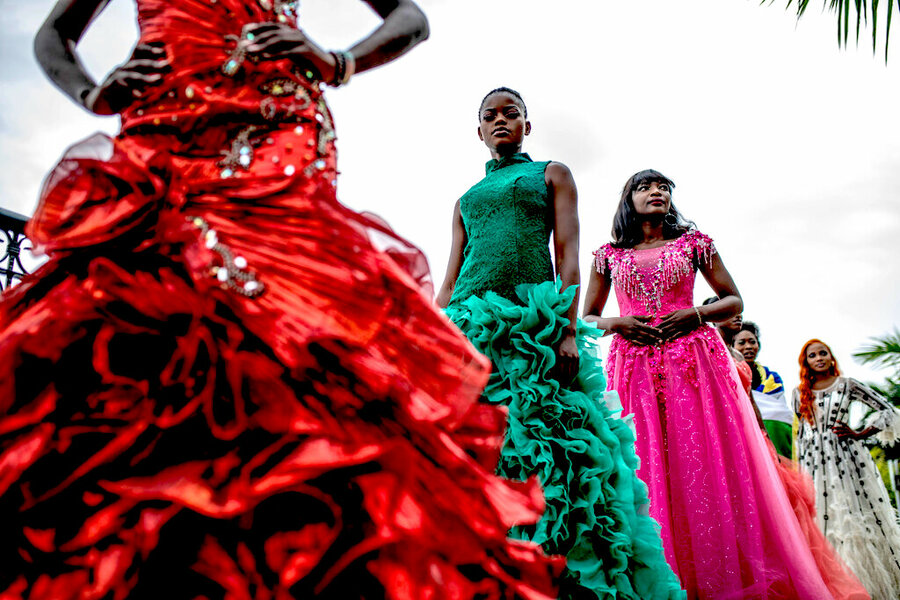African renewal in artistic expression
Loading...
In the 30 years since it was torn apart by an ethnic genocide, the tiny nation of Rwanda in central Africa has sought to be a model of reconciliation, forward economic thinking, and – lately – leadership in the global transition to green energy.
Now it seeks to become a cultural hub showcasing a mental transition driven by younger generations of Africans who reject being defined or restrained by their continent’s troubled past. That idea is at the heart of an ambitious arts festival opening today in Kigali, the capital.
The Kigali Triennial reflects “the broader question of rebound, of rebirth after the genocide,” the organizers wrote. “As elsewhere in Africa, where many decolonizations have failed, it is a question of knowing how to start again, as Africans ... to let people know that these young people have something to say to the world, in a radically new way.”
In just 26 years, 1 in 4 people on the planet will be African. The continent’s rapid growth – its population is on track to double by 2050 – marks a youthful contrast to the graying trends in Europe, Asia, and the United States. The generations of Africans born after the Cold War, apartheid in South Africa, and the 1994 genocide in Rwanda hold dramatically new views of themselves and their place in the world.
Better educated than their parents and impatient with faltering governance, they are harnessing technology to advance innovation and assert confidence, optimism, and dignity. A 2023 survey by the Higher Education for Good Foundation, based in Geneva, found that African youth desire a sense of purpose and achievement more than material success.
“It feels like the opportunities are unlimited for us right now,” Jean-Patrick Niambé, a hip-hop artist from Ivory Coast, told The New York Times in October.
African sensibilities are spreading globally. From 2018 to 2023, the number of African or participants of the African diaspora at the Venice Biennale for architecture grew from two to 89. The 2022 laureate of the Pritzker Architecture Prize, the field’s most prestigious award, was from Burkina Faso. The Brooklyn Museum featured a fashion exhibit last fall featuring the works of 40 designers from 20 African countries.
The 10-day festival in Kigali draws together the works of more than 400 artists from 25 African countries (and a few from Europe and the Middle East). They represent a broad range of creative expression – in painting, drama, filmmaking, literature, fashion, sculpture, dance, music, and gastronomy.
The Rwandan government hopes that the festival will be a catalyst for economic growth. If it is, it may be due to the deeper purpose of art to stir the higher tones of thought that enrich human achievement with purpose.
“We can’t continue to live in this strangulation of economic and mental poverty where all our resources are being exploited,” said Niyi Coker, a Nigerian filmmaker and director of the School of Theatre, Television, and Film at San Diego State University. “We are defining ourselves ... and telling our own historical truths.” The next generation of Africans, he told iBand Magazine, should “have a story of who they are and where they are coming from.”







